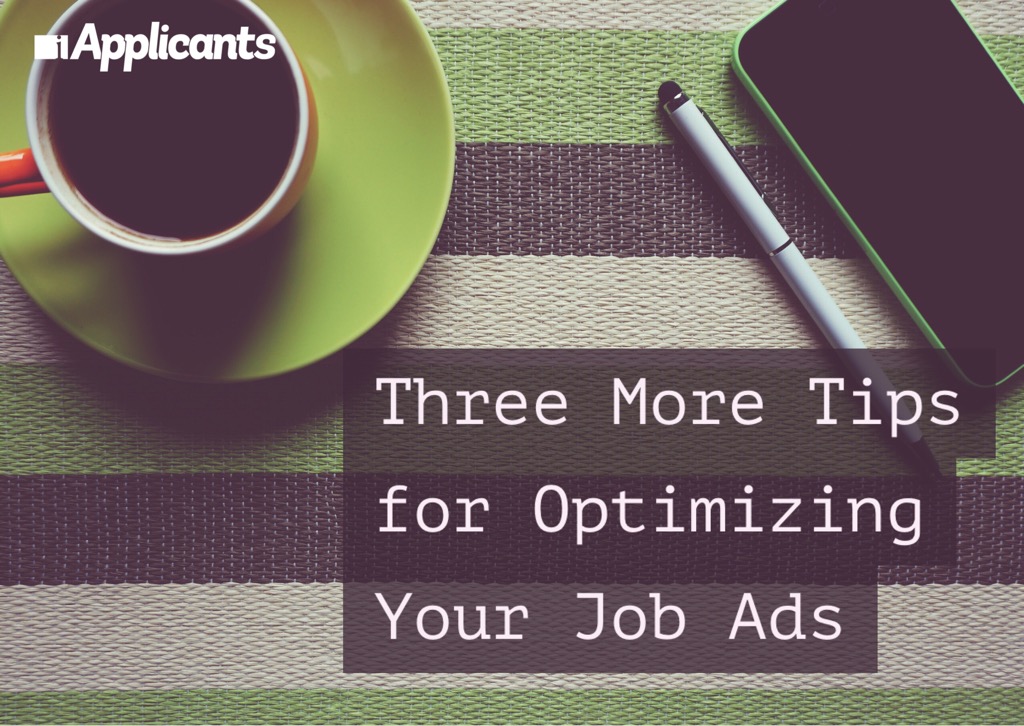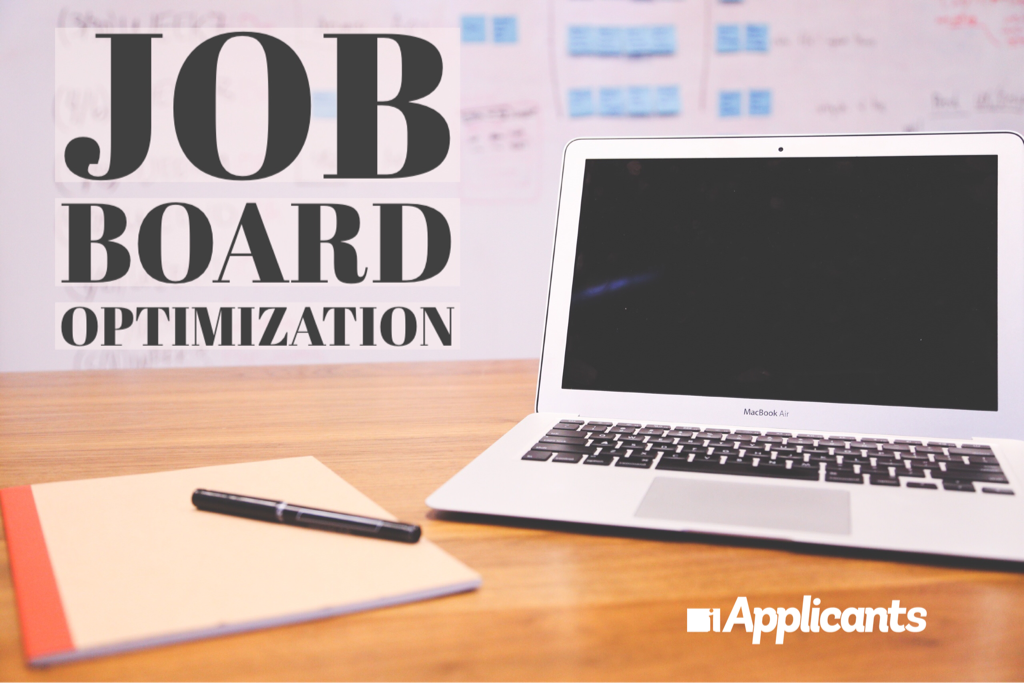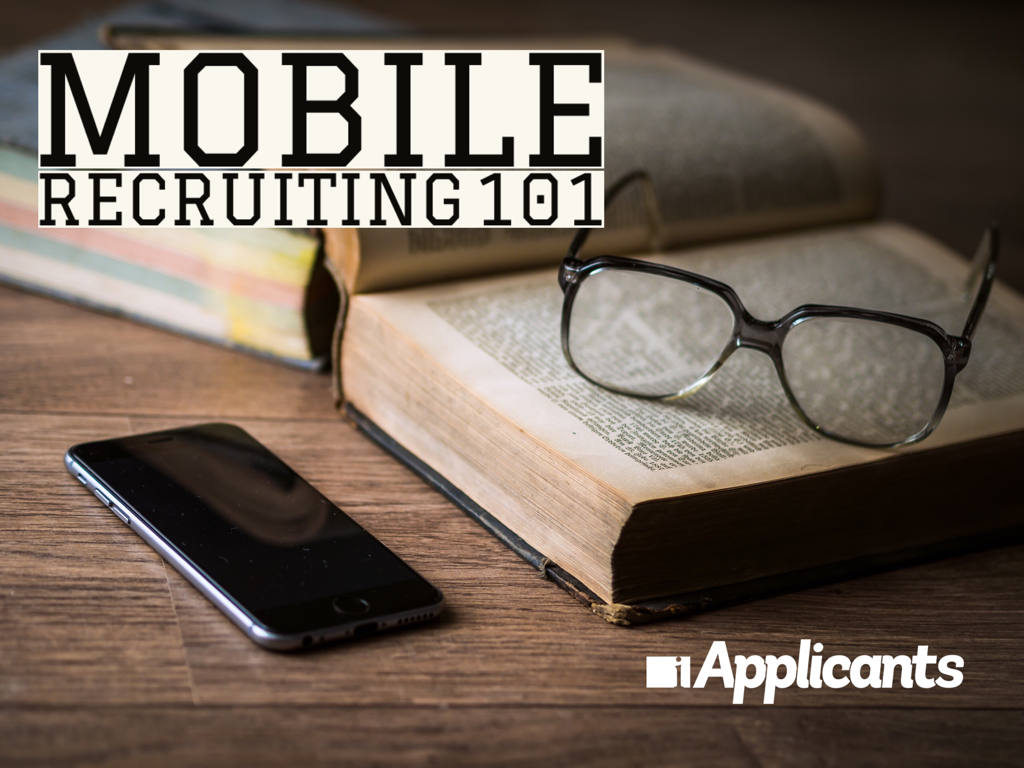by Kurtis Blackburn | Applicant Tracking System, Hiring, Hiring Software, Strategic Hiring

If you’re an HR professional, you’ve likely heard the term “strategic” thrown around about a thousand times throughout your career. HRCI says it. SHRM says it. And your bosses definitely say it. So why is adopting a more strategic approach so dang hard? I think the primary reason being more strategic is difficult is that it’s not simply a goal to strive for and achieve once, it’s a mindset. Having a strategic mindset means that you’re aligned to the goals of the vision of the company as a whole and you’re committed to it for the long haul. Strategic means that you understand on even the most minute levels how your decisions impact the company as a whole and you design goals around the strategic vision your C-suite has for the company. This includes every facet of your position, including hiring. So how do you create a hiring plan that aligns with your company’s strategic vision? Here are a few tips to help you get started: Strategic hiring means cutting costs by increasing hiring speed. Many of our clients didn’t believe that it was possible to increase their hiring speed without spending more money until they realized that their recruiting approach could be greatly improved with a little strategic tweaking. One of the easiest ways to cut down your time to hire is to dedicate more time to writing a strategic job ad. If you write a job ad that appeals to the type of person you think would be a good fit with the culture of your company, you’ve already eliminated a significant portion of the work involved in screening out applicants that wouldn’t be a good fit. And speaking of. . .
by Kurtis Blackburn | Applicant Tracking System, Hiring, Hiring Software, Job Ads, Job Board

Job ads are the gateway to qualified job applicants. As I mentioned in my first job ads post, job ads are probably an applicant’s first real exposure to your company. Make the impression a good one. Of course, it’s not really as simple as snapping one’s fingers and creating killer job ads, but with the couple of tips I shared in my last post, and the few I’ll be sharing here, you should have a very solid starting point to creating optimized job ads. Even if you are feeling a little overwhelmed trying to streamline your hiring process. Use strategic keywords in your job ads. This section is a blog post in and of itself, but I’ll highlight some key points to remember when building a keywords strategy for your job ads. The first step is to analyze the language you use. Most people when writing something (unless they’re professional writers/marketers) tend to write items from their own perspective, and HR is no exception. Writing from your own viewpoint isn’t a bad thing per se, it just limits how well received it may be by others who read it. Job ads are really advertisements selling your open positions. Because HR tends to very compliant minded, a lot of the language used in job ads sounds very legal and dry. Again, this isn’t necessarily a bad thing until you realize that job ads are really advertisements selling your open positions. You’re writing an advertisement to sell something to a customer (applicant), so you want to use selective language that will appeal to your applicants. In tech terms, you want to choose targeted keywords or keyword phrases that job candidates will use to. . .
by Kurtis Blackburn | Applicant Tracking System, Hiring, Job Board, Mobile Recruiting, Recruiting Basics

Did you know that at least 80 percent of job seekers use a company’s career site to learn more about and “investigate” potential employers? We live in the age of over-information, so if you’re an employer that isn’t utilizing every possible online channel available to communicate with applicants (including an optimized career site), then you’re missing vital opportunities to connect with people who “connect” with someone or something online every six minutes! Fortunately, most HR professionals are convinced that having a career site is essential to their success. Compared to five or so years ago when only about 40 percent of our clients had a career site, that’s significant improvement. Unfortunately, slapping up a haphazard and last minute career site simply for the sake of throwing one together will cause you more grief in the long run because it has the potential to impart a negative perception of your company in your applicant’s mind. If you have a career site, but it’s buried below ten unknown links on your company website, then you might as well not have a career site at all. These simple steps should help ease some of your career site pain: Make your career site visible. One of the biggest frustrations for millennials is hopping onto a website that is not user friendly or intuitive. If you have a career site, but it’s buried below ten unknown links on your company website, then you might as well not have a career site at all. After all, the first rule of the Internet is that you have to be found. If no one can find you, you don’t exist. Additionally, having your career site somewhere conspicuous on your homepage helps you to establish a. . .
by Kurtis Blackburn | affirmative action, Applicant Tracking System

If you’re an HR professional, affirmative action plan tracking likely rules your universe. And why shouldn’t it? One misstep can cost both you and your company a boatload of money. Instead of fearing your affirmative action plan though, you should welcome the opportunity to create an affirmative action plan that appeals best to your organization. All you need is a basic understanding of how an affirmative action plan works and how to create a tracking plan that monitors your hiring process from start to finish. If you’re an HR professional, affirmative action plan tracking likely rules your universe. What is an affirmative action plan? In a nutshell, an affirmative action plan is a company plan designed to ensure outreach to protected classes and also to provide equal employment opportunities to these groups. These efforts are monitored and mandated by the Office of Federal Contract Compliance Programs (OFCCP). Currently, the four protected classes are females, minorities, veterans, and individuals with disabilities. Who needs an affirmative action plan? This list isn’t exhaustive, but it should help you get your affirmative action plan feet wet to determine whether or not your company qualifies for tracking: 1st Tier Government contractors with $50,000 or more in federal government contracts or 50 or more employees at one location. 2nd Tier Government contractors (supplies to a 1st tier contractor) with $50,000 or more in contracts of 50 or more employees at one location Working on many city and state contracts Growing businesses desiring city, state, federal contracts What should an affirmative action plan track? As mentioned earlier, an effective affirmative action plan tracks the hiring process from post all the way through hire. Here are a few affirmative action hiring plan. . .
by Kurtis Blackburn | Applicant Tracking System, Hiring, Job Board, Strategic HR

A job board is essentially the more modern version of the newspaper classifieds. Except, navigating the classifieds section was a little easier because the basic recipe for success was a simple job description and coughing up the cash for advertising space. While it’s true there are a few more steps involved with optimizing a job board, the tips outlined in this post should provide some basic framework. The rest of the optimization process is up to you as the HR professional. A job board is essentially the more modern version of the newspaper classifieds. What is a job board? In its simplest form, a job board is an online “board” that hosts a variety of job ads. A job board is slightly different than a job aggregator which essentially “scrapes” job descriptions off the web. On a job board, employers are usually the ones to supply the job ad directly. What is job board optimization? Now that we’ve narrowed down what it is, let’s dig a little deeper into what we mean with the phrase “job board optimization.” Optimization essentially means to make something as perfect or as refined/efficient as possible, so this is our end goal with job board optimization. We want the job board to function as effectively as possible so we can maximize our job ad exposure and gain quality applicant traffic. What are the steps involved with job board optimization? The optimization process is simple if we break the process down into steps. I’ve outlined the three basic phases of the optimization process below. You want the ad to be found on your job board. The first step your optimization strategy is to produce an ad that’s. . .
by Kurtis Blackburn | Applicant Tracking System, Hiring, Hiring Software, Mobile Recruiting

Mark my words, mobile recruiting is the only future. Actually, because 86 percent of applicants start their job search on a mobile device, that future forecast for mobile recruiting is more likely our predictable present. So what does all this mobile recruiting talk have to do with HR? A lot more than you think… The employment landscape has evolved over the years and mobile recruiting is one of the latest offshoots of our society’s dependence on technology. If you were to analyze recruiting strategies ten or so years ago, the employers dominated and dictated where job openings were advertised and available (newspaper classifieds, wanted signs, etc). Nowadays however, it’s applicant traffic trends that determine where employers go to post their jobs. If you are looking to attract a high quantity of top talent, then you need to adapt your hiring process around the needs of job seekers – enter mobile recruiting. When you say mobile recruiting, what devices are you referring to? Let’s start with the basics. Mobile recruiting involves applicants looking for and applying for open positions on a mobile device. A mobile device ranges anywhere from a smartphone to a tablet. So how many people can you actually target with mobile recruiting? Well, let’s put it this way, there are more smartphones on this planet than there are people, so the chances of someone using this type of device to search for jobs is pretty much guaranteed. There are more smartphones on this planet than there are people. Why mobile recruiting? The answer to why mobile recruiting surpasses traditional job searching methods is simple – because it’s mobile. Pretty much everything you could ever want to learn about the world now. . .









